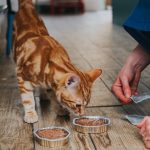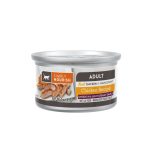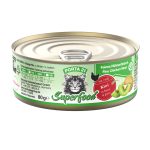Unveiling The Feline Mystery: Why Does My Cat Beg For Human Food? Unlock The Secret Now!
Why Does My Cat Beg for Human Food?
Hello, Cat Enthusiast! Are you tired of your feline friend constantly begging for your food? Well, you’re not alone. Many cat owners wonder why their beloved pets exhibit this behavior. In this article, we will explore the reasons behind why cats beg for human food and provide useful insights to help you understand and address this issue.
Introduction
1. Cats are known for their curiosity, and this extends to their taste buds. They are naturally intrigued by the smells and flavors of human food, which often differ from their regular diet of commercial cat food.
3 Picture Gallery: Unveiling The Feline Mystery: Why Does My Cat Beg For Human Food? Unlock The Secret Now!
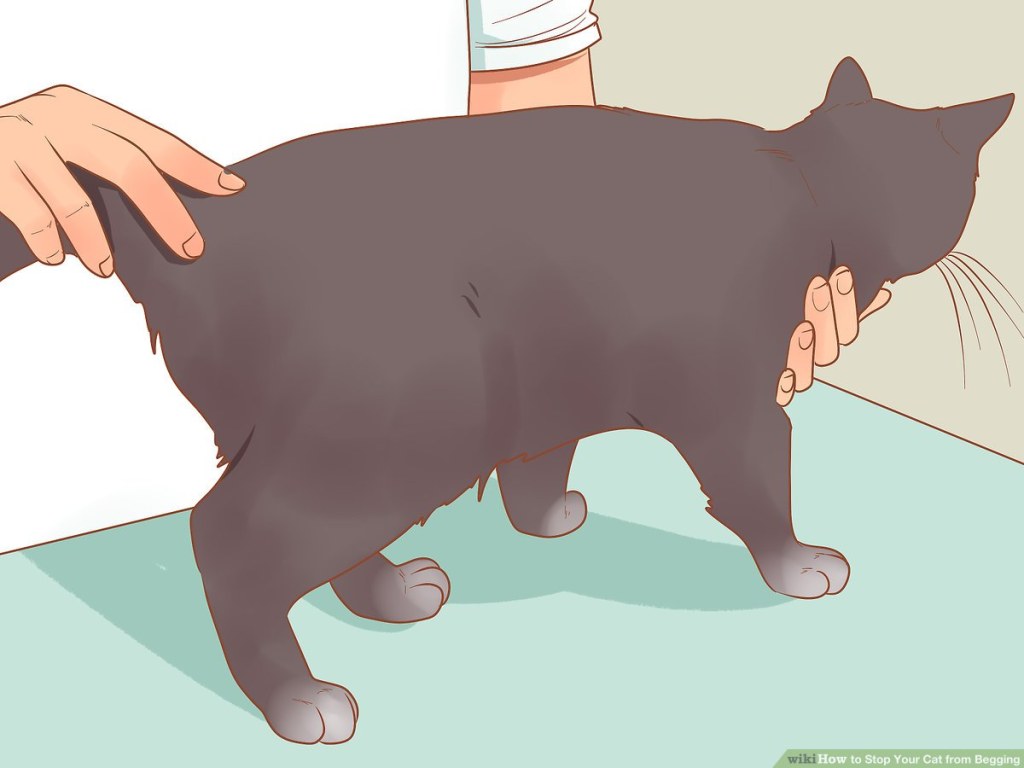
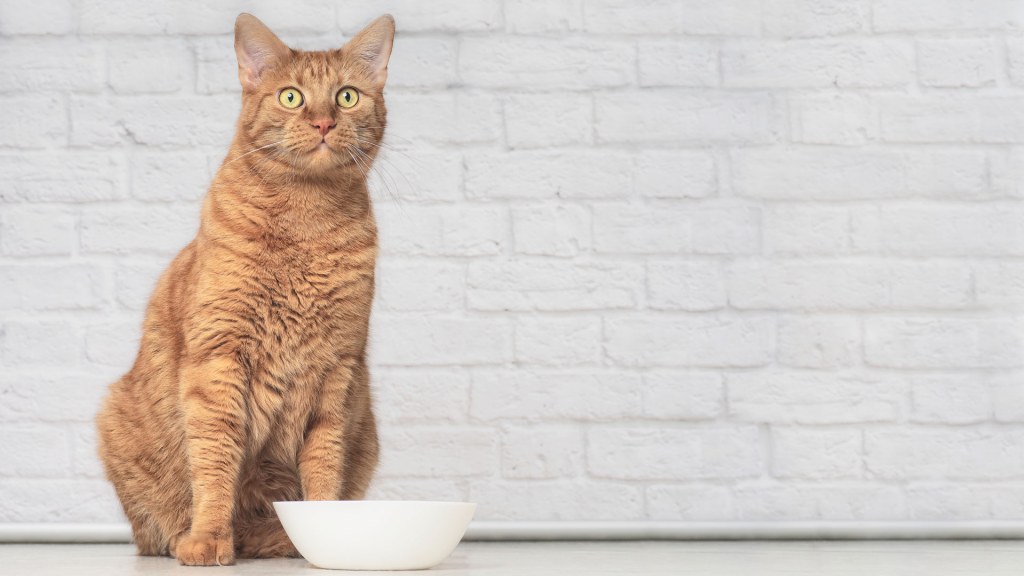
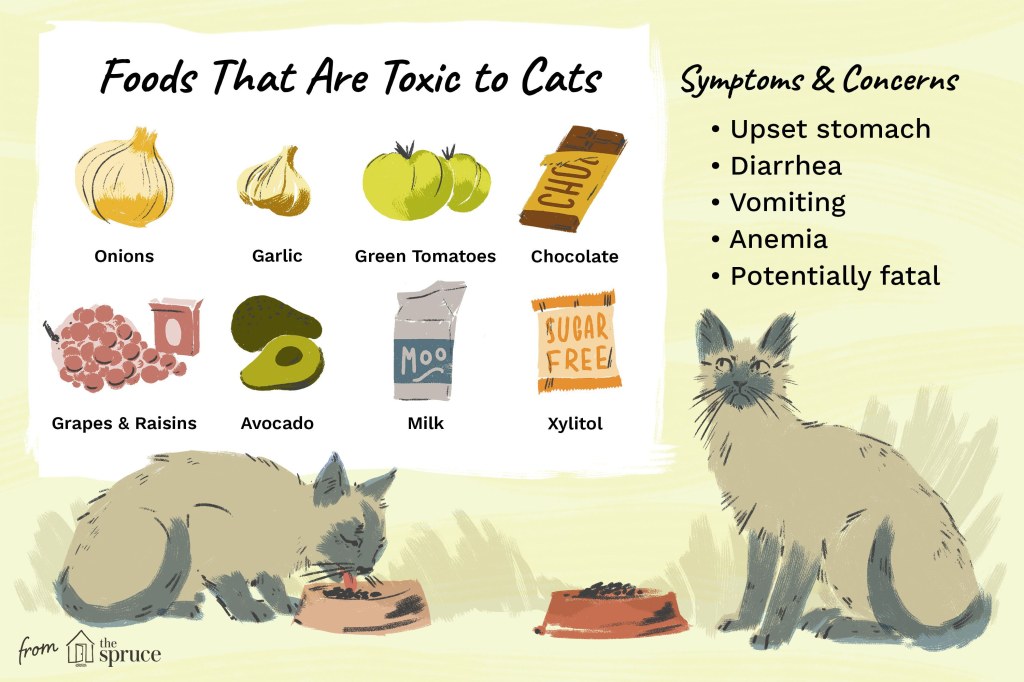
2. Some cats have a strong desire to mimic their owners’ behavior. If they see you eating something delicious, they may want to have a taste as well.
3. Cats are opportunistic eaters. In the wild, they would scavenge for food whenever they had the chance. This instinct is still present in domestic cats, leading them to beg for food whenever they see an opportunity.

Image Source: wikihow.com
4. Cats are social animals and enjoy the attention they receive when they beg for food. They may associate this behavior with getting love and affection from their owners.
5. Certain breeds of cats are more prone to begging for human food. For example, Siamese cats are known for their vocal and demanding behavior, which includes begging for food.
6. Cats may develop a preference for certain types of human food due to the taste, texture, or smell. Once they have had a taste of something they enjoy, they will be more likely to beg for it in the future.
7. It’s important to note that feeding cats human food can have negative consequences. Many human foods are toxic to cats and can cause digestive issues, organ damage, or even be fatal. It’s essential to educate yourself about safe and appropriate foods for your cat.
What

Image Source: futurecdn.net
What exactly is it that makes cats beg for human food? Well, it’s a combination of factors that contribute to this behavior. Firstly, cats are naturally curious creatures, and they are drawn to the smells and flavors of human food. Additionally, some cats want to mimic their owners’ behavior and enjoy the attention they receive when begging for food. Certain breeds are more prone to this behavior, and once a cat develops a taste for human food, they will continue to beg for it. However, it’s important to remember that feeding cats human food can be harmful to their health.
Who
Cats from all walks of life can exhibit this behavior. It is not limited to a specific age, breed, or gender. Whether you have a playful kitten or a wise senior cat, they may still beg for your food. However, certain breeds, such as Siamese cats, are more likely to beg due to their vocal and demanding nature. Understanding why your cat is begging for food can help you address the issue and take appropriate action.
When

Image Source: thesprucepets.com
Cats may beg for human food at any time, but they are more likely to do so when they see their owners eating. Cats are incredibly observant, and they may want to join in on the dining experience. Additionally, if they associate begging with receiving food or attention, they may beg more frequently. It’s important to establish boundaries and a consistent feeding routine to discourage this behavior.
Where
Cats may beg for human food wherever they have access to their owners and food. This could be in the kitchen, dining room, or even while you’re eating in front of the television. Cats are opportunistic eaters and will seize any chance to get a taste of something delicious.
Why
There are several reasons why cats beg for human food. Firstly, they are naturally curious and intrigued by the smells and flavors of human food. They may also want to mimic their owners’ behavior and enjoy the attention they receive when begging. In some cases, it may be a breed-specific behavior, such as with Siamese cats. Additionally, once a cat develops a taste for human food, they will continue to beg for it. However, it’s important to remember that feeding cats human food can have negative health consequences.
How
If your cat is constantly begging for your food, there are several steps you can take to address this behavior. Firstly, ensure that your cat is receiving a balanced and nutritious diet tailored to their specific needs. This will help satisfy their nutritional requirements and reduce their desire for human food. Establish a consistent feeding routine and avoid feeding your cat from the table or allowing them to eat scraps. If your cat continues to beg, try distracting them with interactive toys or offering them a small portion of their regular cat food as a treat. Consistency and patience are key when training your cat to stop begging for human food.
Advantages and Disadvantages
Advantages:
1. Strengthening the bond with your cat: Sharing moments around mealtime can help create a closer bond between you and your feline friend.
2. Enrichment and variety: Offering your cat small, safe, and appropriate portions of human food can provide mental stimulation and variety in their diet.
Disadvantages:
1. Health risks: Feeding your cat human food can expose them to potential toxins and harmful ingredients that can cause digestive issues or organ damage.
2. Nutritional imbalances: Human food is not specifically formulated for cats and may lack essential nutrients, leading to nutritional deficiencies over time.
FAQs (Frequently Asked Questions)
1. Q: Is it safe to give my cat small amounts of human food as a treat?
A: Small amounts of certain human foods can be given as an occasional treat, but it’s important to ensure they are safe and appropriate for cats. Consult with your veterinarian to determine which foods are suitable.
2. Q: How can I prevent my cat from begging for human food?
A: Establish a consistent feeding routine, avoid feeding your cat from the table, and provide them with a balanced and nutritious diet to reduce their desire for human food.
3. Q: What are some safe human foods that I can give my cat as a treat?
A: Safe options include small pieces of cooked chicken, turkey, or fish. However, always ensure that the food is boneless, plain, and free from seasonings or additives.
4. Q: Can feeding my cat human food cause weight gain?
A: Yes, feeding your cat excessive amounts of human food can lead to weight gain and obesity. It’s important to monitor their calorie intake and ensure they’re receiving a balanced diet.
5. Q: Is it okay to share my meal with my cat occasionally?
A: While it may be tempting to share your meal with your cat, it’s best to avoid this practice. Human food can contain ingredients that are toxic to cats, and it’s important to prioritize their health and well-being.
Conclusion
In conclusion, cats beg for human food due to their natural curiosity, desire to mimic their owners’ behavior, and the attention they receive. Certain breeds are more prone to begging, and once a cat develops a taste for human food, they will continue to seek it out. However, it’s crucial to remember the potential health risks associated with feeding cats human food. By providing a balanced and nutritious diet, establishing a consistent feeding routine, and avoiding feeding your cat from the table, you can help discourage this behavior and ensure your cat’s well-being.
Remember, your cat’s health should always be a top priority, so consult with your veterinarian for specific dietary recommendations and guidance.
Disclaimer: This article is for informational purposes only and should not replace professional veterinary advice. Always consult with a qualified veterinarian regarding your cat’s health and dietary needs.
This post topic: Cats
